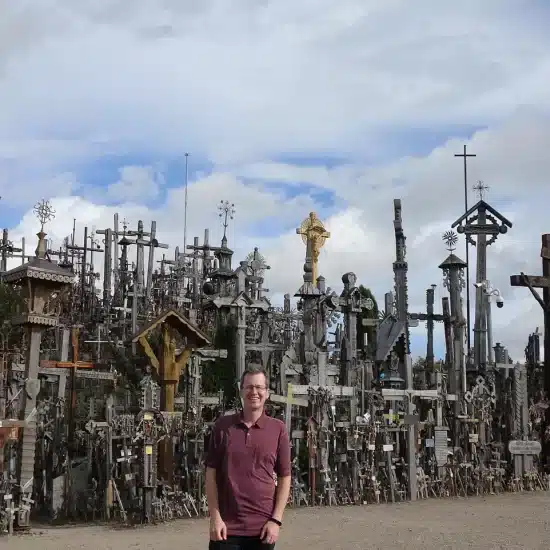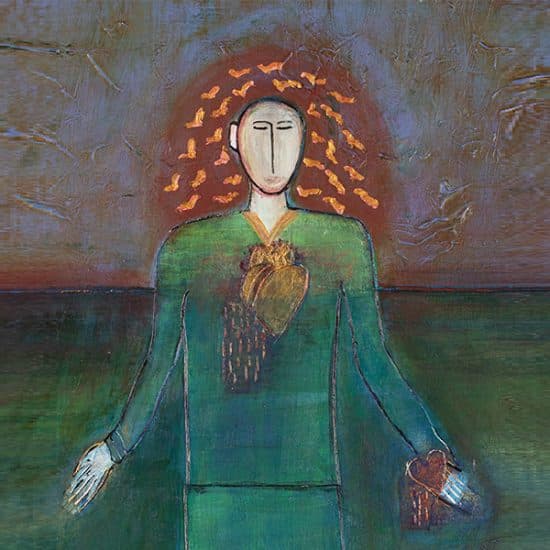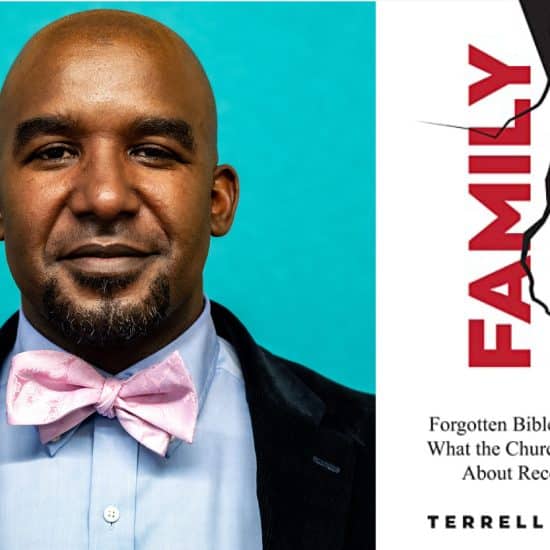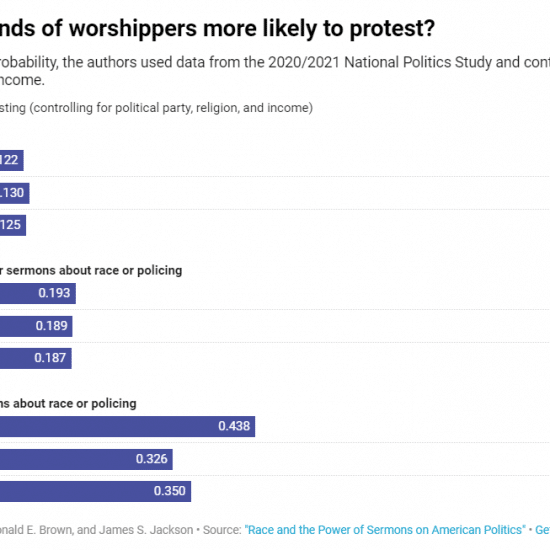WASHINGTON (ABP) — A divided Supreme Court rendered a complex decision April 28 on the fate of a lonely cross in the California desert. The decision — the first major church-state case of Chief Justice John Roberts’ tenure — upset religious-freedom advocates but heartened religious conservatives.
By a 5-4 vote, the court’s majority agreed only that the case should be returned to a lower court to re-evaluate an injunction that required the cross be removed from public view.
The cross — successor to one first erected as a World War I memorial in 1934 — stands atop Sunrise Rock, next to a road in a remote part of California’s Mojave National Preserve. Although several crosses erected by private groups have stood on the spot over the years, the current version was built of painted metal pipes by a local resident in 1998. It has been the site of community Easter services for years, but federal officials have covered it with a plywood box to comply with court orders.
Justice Anthony Kennedy wrote the court’s plurality opinion, but was only joined in his reasoning fully by Roberts and partially by Justice Samuel Alito. Kennedy said a lower federal court had erred by denying an attempt by Congress to transfer a small parcel of land on which the cross is located to a private owner who would maintain the monument.
The lower court called the attempted land transfer an impermissible government attempt to avoid enforcement of a previous court decision — a decision not at issue in this case.
But Kennedy disagreed. “By dismissing Congress’s motives as illicit, the [federal] district court took insufficient account of the context in which the statute was enacted and the reasons for its passage,” he wrote. “Private citizens put the cross on Sunrise Rock to commemorate American servicemen who had died in World War I. Although certainly a Christian symbol, the cross was not emplaced on Sunrise Rock to promote a Christian message.”
Case’s origins
The origins of the case date to 1999 when the National Park Service, which oversees the land, denied an application from a group that wanted to build a Buddhist shrine near the cross. The agency studied the history of the monument, said it did not qualify as a historic landmark and announced plans to remove it.
Congress intervened with a series of actions that effectively preserved the cross.
In 2001 Frank Buono, a Catholic and a retired National Park Service employee who once worked at the preserve, filed suit with the help of the American Civil Liberties Union. His attorneys claimed that the cross violated the First Amendment’s ban on government establishment of religion.
A series of federal-court decisions went against both the cross and the government’s attempts to preserve it. In 2007, the 9th U.S. Circuit Court of Appeals invalidated the land transfer. President Bush's administration appealed the ruling, and President Obama’s Justice Department continued to defend the monument.
Decision leaves standing intact
Justice Antonin Scalia, joined by Justice Clarence Thomas, wrote separately to assert that, while he agreed with the judgment, he would have settled the case by determining that Buono did not have legal standing to bring the lawsuit in the first place.
Many church-state separationists had feared that conservatives like Scalia and Thomas could use the case to further curtail the ability of taxpayers to bring such challenges to government endorsements of religion. However, the plurality explicitly found that Buono’s standing was not in question.
“To date, this court’s jurisprudence in this area has refrained from making sweeping pronouncements, and this case is ill suited for announcing categorical rules,” Kennedy wrote.
Acceptable congressional remedy?
Alito wrote separately to assert that there was no need to send the case back, because Congress had come up with an acceptable remedy to a difficult constitutional situation.
“The singular circumstances surrounding the monument on Sunrise Rock presented Congress with a delicate problem, and the solution that Congress devised is true to the spirit of practical accommodation that has made the United States a nation of unparalleled pluralism and religious tolerance,” he wrote.
“If Congress had done nothing, the government would have been required to take down the cross … and this removal would have been viewed by many as a sign of disrespect for the brave soldiers whom the cross was meant to honor. The demolition of this venerable, if unsophisticated, monument would also have been interpreted by some as an arresting symbol of a government that is not neutral but hostile on matters of religion and is bent on eliminating from all public places and symbols any trace of our country’s religious heritage.”
Dissenters: Cross is Christian, injunction is appropriate
But retiring Justice John Paul Stevens, joined in a fiery dissenting opinion by Justice Ruth Bader Ginsburg and Justice Sonia Sotomayor, said the lower court had every right to enforce its earlier decision — affirmed by an appeals court — that the government could not “permit the display” of the cross in the area of Sunrise Rock.
“A Latin cross necessarily symbolizes one of the most important tenets upon which believers in a benevolent Creator, as well as nonbelievers, are known to differ,” he wrote. “In my view, the district court was right to enforce its prior judgment by enjoining Congress’ proposed remedy — a remedy that was engineered to leave the cross intact and that did not alter its basic meaning. I certainly agree that the nation should memorialize the service of those who fought and died in World War I, but it cannot lawfully do so by continued endorsement of a starkly sectarian message.”
He also criticized a separate effort by Congress to preserve the cross by making it an official national memorial. And he expressed bafflement at Kennedy and Alito's notion that the cross is more than merely a symbol of Christianity, but also a universal symbol for the dead.
“Making a plain, unadorned Latin cross a war memorial does not make the cross secular. It makes the war memorial sectarian,” Stevens wrote. “The Mojave Desert is a remote location, far from the seat of our government. But the government’s interest in honoring all those who have rendered heroic public service regardless of creed, as well as its constitutional responsibility to avoid endorsement of a particular religious view, should control wherever national memorials speak on behalf of our entire country.”
Church-state advocates’ reaction
Some church-state separationists, while relieved that the court did not use the case to gut normal citizens’ ability to bring such lawsuits, nonetheless expressed serious disappointment with the decision.
“This decision lets Congress bypass the Constitution and devise a convoluted scheme to keep a cross on display in a federal park,” said Americans United for Separation of Church and State President Barry Lynn, in a press release. “That’s bad law and bad public policy. The court majority seems to think the cross is not always a Christian symbol. I think all Americans know better than that.”
But religious conservatives cheered the decision — while urging their comrades to fight on as the case returns to the lower court.
“It is a disgrace that this memorial to our fallen veterans has been covered in a box of plywood for ten years while the case made its way to the U.S. Supreme Court,” said Liberty Institute President Kelly Shackelford, who filed friend-of-the-court briefs on behalf of the current monument’s caretakers and veterans’ groups in the case. “We applaud the Supreme Court for overruling the decisions below, but this battle is not over. This box must come off. No war memorial with religious imagery is safe until the Court rules that these memorials, which serve to remember our fallen heroes of the military, are allowed under the Constitution.”
The decision is Salazar v. Buono, No. 08-472.
-30-
Robert Marus is managing editor and Washington bureau chief for Associated Baptist Press.
Read More
Supreme Court plurality, concurring and dissenting opinions in Salazar v. Buono
Previous ABP stories:
Supreme Court gets technical in arguments on Mojave cross (10/7/2009)
Supreme Court agrees to hear case involving cross on federal land (2/23/2009)






